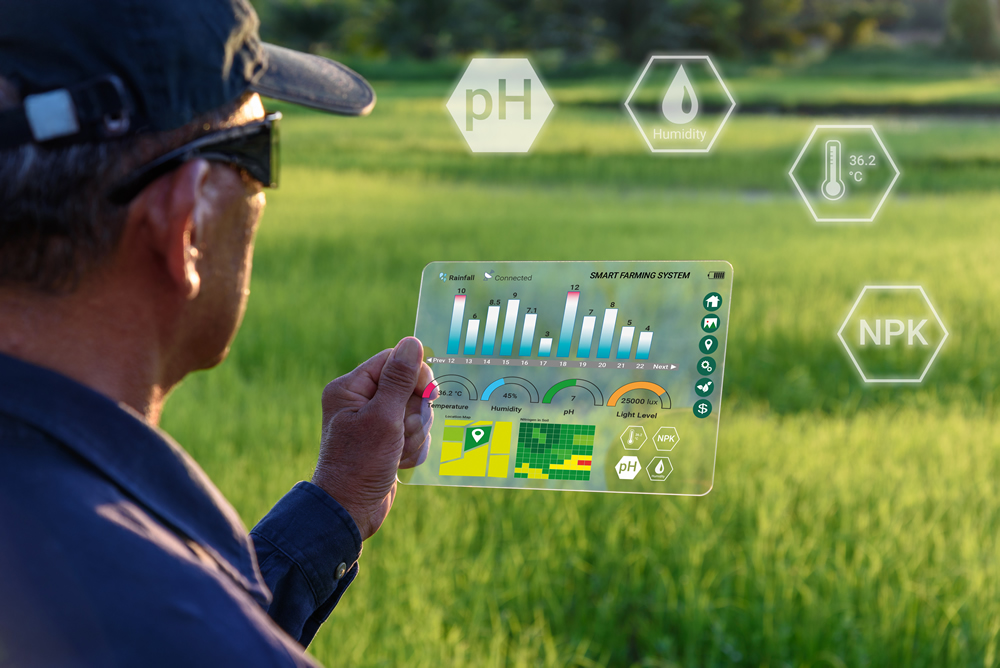The agriculture industry has seen an immersive growth in technological advancements, as new seeds of innovation are continuously ever-growing. The world of agriculture must stay ahead of time, especially with the growing global food consumption in the climate crisis.
As agriculture trends shift their focus to a more innovative farming and practical approach in utilising time and resources to reduce the losses of crops. The introduction of artificial intelligence (AI) and the Internet of Things (IoT) has led to a more technology-based structure that eliminates manual farm operations such as killing weeds, picking fruits and vegetables, or water spraying.
With this in mind, we will be going through the expected trends in 2023:
Internet of Things (IoT)
The Internet of Things (IoT) has been an adequate substitute for traditional methods.
Farmers would monitor the crop field in conventional farming, which resulted in intensive labour, physical energy, time, and effort.
IoT devices comprise a single or more sensor that collects data and provides accurate information via mobile applications and other applications in real-time.
In addition, with the IoT devices, they will be able to perform activities such as evaluating the soil temperature and humidity sensing, livestock stacking, and much more.
IoT has become a resourceful basis for farmers, reducing the labour work with technologies that can do it in a shorter timeframe.
Furthermore, with the new irrigation systems from IoT sensors, they offer a device that instantly automates water delivery to crops, on-site soil moisture sensors, and even rain sensors, to name a few.
With the combination of IoT technology with drones, robots, and other computing imaging, start-ups are developing innovative sensor solutions that increase the agility and accuracy of farming progress. In addition, this sends them on-time alerts that improve response times for areas needing more attention.
A great example of IoT is Agrila, which created a modular IoT- based sensor station that facilitates sensing vital parameters of temperature and soil moisture, wind speed, rain, humidity, and much more.
With this, it offers intensive reports, analyses, and charts for farmers to gain a deeper insight into an efficient and economic standpoint.
Artificial Intelligence (AI)
The incorporation of artificial intelligence within the agriculture industry provides farmers with a real-time evaluation of their field and weather conditions, giving them a proactive approach to their strategies.
AI offers farmers recommendations and informed decisions through chatbots, aiding farmers in a way that was never possible in the past, with timely detection and corrective responses.
Robotic machines are designed to copy human intelligence and behaviour, eliminating daily farming tasks such as monitoring soil health, fighting pests and diseases in crops, and many other workloads.
With the increased demand for food production and natural disasters, AI is needed more than ever to efficiently assist these overall workloads.
An exciting and effective AI prototype created by Nexus called the “La Chevre” is fully automated and can navigate and remove weeds autonomously.
With a built-in camera and a neural network, it can distinguish between weeds and crops. It’s also able to recognise crops throughout all stages of growth while operating 24 hours a day.
La Chevre has the function of constantly collecting data on the produce and growing conditions, allowing the farmer to make a more strategic decision about soil fertility and disease remediation.
Agricultural Biotechnology
Biotechnology in agriculture focuses on improving the quality of crops and livestock through scientific applications like plant breeding, genetic engineering, and hybridisation.
This means that agriculture biotechnology offers a genetic enhancement in food and plant products that can reduce vulnerability to pests, droughts, and high yield capacity.
A great example of agricultural biotechnology is AgGene, a Canadian start-up that manipulates plant breeding techniques to develop seeds and tissues with increased protein content.
Increased protein content assists many significant crop production challenges, such as climate resiliency and advances in genetic technologies for crop production’s future.
With the agriculture industry continuously evolving with its many technological developments, smart farming is making agriculture much more profitable for farmers. The agriculture trends, technologies, and start-ups mentioned in this blog are only the beginning of the farming industry trends. Being proactive and consistently identifying new opportunities for emerging technological advancements will assist your business and farm gain a competitive advantage.

